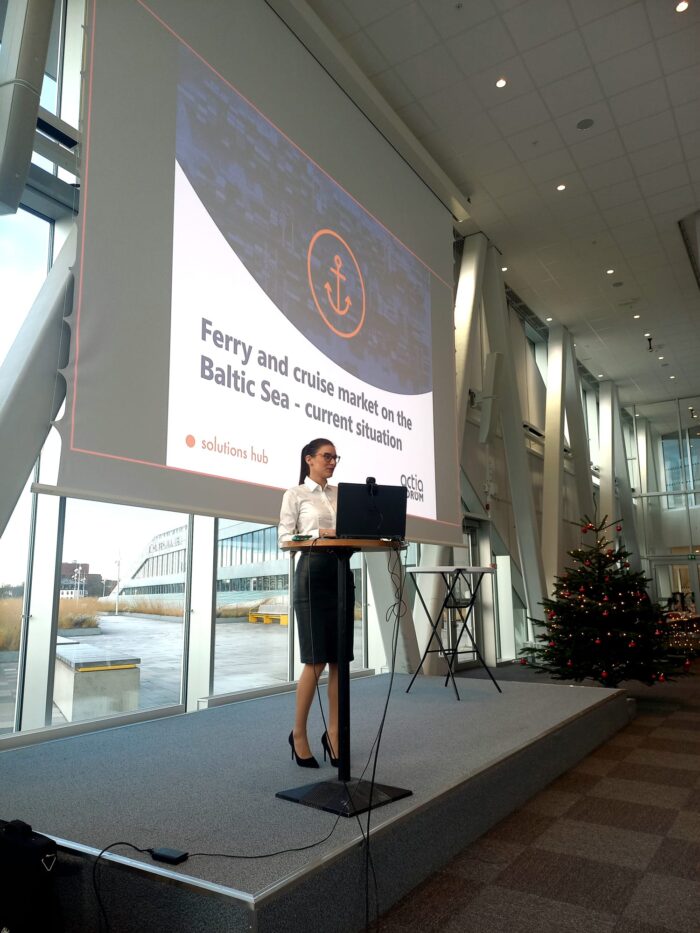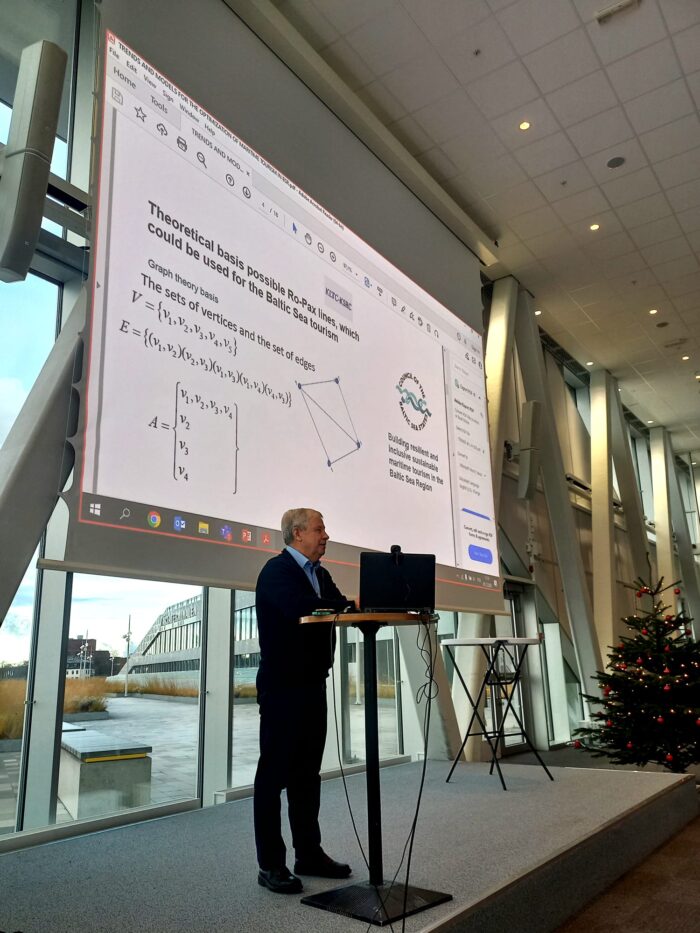As the SusMarTour project is coming to an end, the Final Conference was held this week on the 7th of December in the Ports of Stockholm. The event gathered all three project partners’ representatives and other experts who spoke about the most important aspects of the project. One of the highlights of the agenda was the presentation of the report on the future of maritime tourism in the BSR.
The document was created as a part of the ‘Building resilient and inclusive sustainable maritime tourism in the Baltic Sea Region’ – the SusMarTour project, in which Motus Foundation was a Project Leader and Baltic Ports Organization together with Klaipeda Shipping Research Centre were Project Partners. The project was initiated and sponsored by the Council of the Baltic Sea States, Project Support Facility.
Ewelina Ziajka, Market Analysis Specialist from Actia Forum presented a project report as a representative of the Baltic Ports Organization. The first part of the document includes the current market situation in ferry and cruise transport, sustainable solutions in ferry transport, and major developments in ferry and cruise terminals in Baltic ports.
The second part of the report, written by Professor Vytautas Paulauskas from the Klaipeda Shipping Research Center is dedicated to transport modeling using the graph theory and presenting possible future ro-pax lines in the Baltic Sea Region.
What are the main conclusions of the SusMarTour Report?
The dynamic changes in the cruise and shipping market occurred in recent years. Previously, before the pandemic time, the dynamics of the market were more predictable and not strongly dictated by external factors. The Covid-19 pandemic and the war in Ukraine have definitely affected the transport in the BSR. Due to the restrictions in passenger transport on the majority of ferry and ro-pax routes, the traffic decreased by approx. 70-80% in 2020. In the cruise market, there were ports with no cruise ships calls at all. When the situation with the Covid-19 pandemic began to stabilize, the aggression of the Russian Federation on Ukraine started on the 24th of February 2022. For many years St. Petersburg used to be one of the busiest ports in terms of cruise traffic. After the war started, the majority of cruise ships operators stopped calling at Russian ports and also due to ongoing warfare stopped calling ports in the close vicinity of Russia. As a result, some of the cruise operators have changed the routing in the eastern part of the Baltic to avoid calling ports in that part of the Baltic Sea.
For more info about the SusMarTour project please also visit us on LinkedIn.




